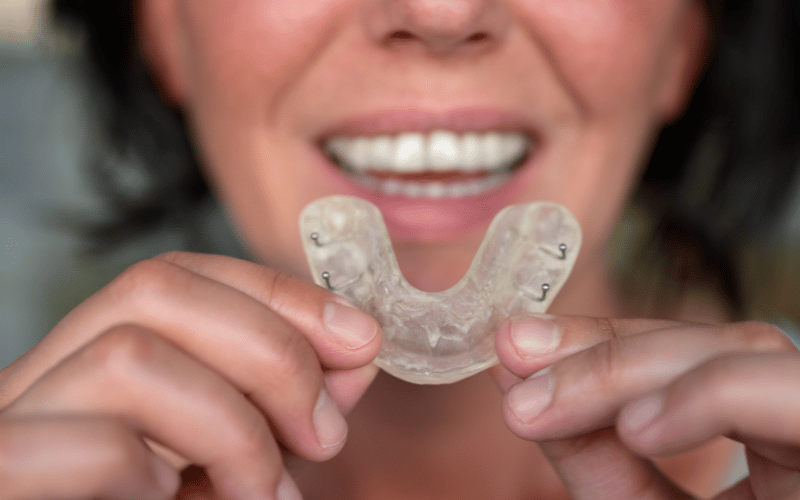Fact 9: Mouth Guards to the Rescue

Mouth guards are often hailed as frontline defenders against the harmful repercussions of bruxism. Crafted meticulously to fit an individual’s dental profile, they play an essential role in mitigating the direct damage that grinding can inflict on the teeth. Think of teeth as two slabs of robust, hard-wearing stone. When these “stones” grate against each other with intense force, the impact can be severe. Mouth guards act as a cushion, intercepting this force and preventing direct tooth-to-tooth contact. This intervention significantly reduces the risk of chipping, fractures, and enamel wear.
While the primary function of a mouth guard is to shield the teeth, its role in promoting muscle relaxation is equally crucial. Constant grinding and clenching engage the jaw muscles extensively, often leading to fatigue and soreness. Over time, this overactivity can manifest in muscle pain and even cause temporomandibular joint disorders. By using a mouth guard, the jaw is given a slight reprieve. The guard’s cushioning effect reduces the load on the muscles, allowing them a brief yet essential respite.
The realm of mouth guards isn’t limited to a one-size-fits-all solution. While drugstores are flooded with generic, over-the-counter guards, they often pale in comparison to their custom-made counterparts. Tailored mouth guards, crafted by professionals, are modeled on an individual’s dental impression. This customization ensures a snug fit, which not only provides optimum protection but also enhances comfort. A well-fitting mouth guard stays in place, reduces gag reflex, and doesn’t interfere with breathing, making it a preferred choice for many.
Investing in a mouth guard is just the initial step. Like any other dental apparatus, it demands consistent care and maintenance. Due to its intimate contact with the oral environment, a mouth guard can become a breeding ground for bacteria if not cleaned regularly. Therefore, daily cleaning, using mild soap or specialized solutions, is imperative. Furthermore, periodic inspections for signs of wear or damage ensure that the guard remains functional. As grinding continues, even the most robust mouth guard will exhibit wear. Regular check-ins with a dentist ensure its efficacy isn’t compromised. (9)